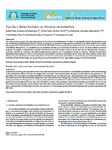Mostrar o rexistro simple do ítem
Familia y redes sociales: un binomio controvertido
| dc.contributor.author | Dans Álvarez de Sotomayor, Isabel | |
| dc.contributor.author | Muñoz-Carril, Pablo-César | |
| dc.contributor.author | González-Sanmamed, Mercedes | |
| dc.date.accessioned | 2020-01-16T13:49:45Z | |
| dc.date.available | 2020-01-16T13:49:45Z | |
| dc.date.issued | 2019 | |
| dc.identifier.citation | Dans Álvarez de Sotomayor, I., Muñoz Carril , P.C. e González Sanmamded, M. (2019). Familia y Redes Sociales: un binomio controvertido. Aula aberta, 48(2), 183-192 | es_ES |
| dc.identifier.uri | http://hdl.handle.net/2183/24690 | |
| dc.description | Artículo elaborado en el marco de la investigación titulada: “Cómo aprenden los mejores docentes universitarios en la era digital: impacto de las ecologías de aprendizaje en la calidad de la docencia” (ECO4LEARN-HE), con Referencia EDU2015- 67907-R, financiado parcialmente por el MINECO. | es_ES |
| dc.description.abstract | [Abstract] Social networks have great importance in the lives of adolescents and the involvement of their families is essential to take full advantage of the possibilities offered and stop the dangers that may arise. This study analyses, through a survey method, the opinions of 1144 secondary school students on parental mediation of access and use of social networks. After descriptive and non-parametric analysis, the results reveal that the minors start using social networks influenced by their group of friends, confirming the lack of family control measures of the use of this type of tool. Likewise, access and time of connection to social networks are linked to school performance and gender. Important differences have also been identified in terms of the perception that families, teachers and students have of social networks, the latter having a more positive view than that of their parents and teachers. In conclusion, it is necessary for families to know what use their children make of social networks, and to develop appropriate educational measures that promote responsible and safe uses. | es_ES |
| dc.description.abstract | [Resumen] Las redes sociales poseen una gran importancia en la vida de los adolescentes y la labor de las familias resulta imprescindible para aprovechar las posibilidades que ofrecen y frenar los peligros que suscitan. En este estudio se analizan, a través del método de encuesta, las opiniones de 1144 alumnos de cuarto de educación secundaria sobre la mediación parental en el acceso y uso de las redes sociales. Tras análisis descriptivos y no paramétricos, los resultados revelan que los menores se inician en el uso de redes sociales a través de su grupo de amigos, constatándose la escasez de medidas de control familiar frente al uso de este tipo de herramientas. Asimismo, el acceso y tiempo de conexión a las redes sociales guardan relación con el rendimiento escolar y el género. También se identifican diferencias importantes en cuanto a la percepción que familias, docentes y alumnado tienen sobre las redes sociales, siendo estos últimos los que manifiestan una visión más positiva. Entre las conclusiones cabe señalar la necesidad de que las familias desarrollen medidas educativas adecuadas que propicien que los menores realicen un uso responsable y seguro de las redes sociales. | es_ES |
| dc.description.sponsorship | Ministerio de Economía y Competitividad; EDU2015-67907-R | es_ES |
| dc.language.iso | spa | es_ES |
| dc.relation.uri | https://doi.org/10.17811/rifie.48.2.2019.183-192 | es_ES |
| dc.rights | Atribución-NoComercial-SinDerivadas 4.0 España | es_ES |
| dc.rights.uri | http://creativecommons.org/licenses/by-nc-nd/4.0/es/ | * |
| dc.subject | Redes sociales | es_ES |
| dc.subject | Familia | es_ES |
| dc.subject | Educación secundaria | es_ES |
| dc.subject | Adolescencia | es_ES |
| dc.subject | Educación digital | es_ES |
| dc.title | Familia y redes sociales: un binomio controvertido | es_ES |
| dc.title.alternative | Family and Social Networks: Controversial Binomial | es_ES |
| dc.type | info:eu-repo/semantics/article | es_ES |
| dc.rights.access | info:eu-repo/semantics/openAccess | es_ES |
| UDC.journalTitle | Aula abierta | es_ES |
| UDC.volume | 48 | es_ES |
| UDC.issue | 2 | es_ES |
| UDC.startPage | 183 | es_ES |
| UDC.endPage | 192 | es_ES |
Ficheiros no ítem
Este ítem aparece na(s) seguinte(s) colección(s)
-
GI-EIRA - Artigos [30]






